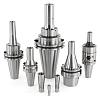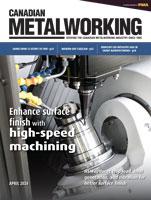Editor
- FMA
- The Fabricator
- FABTECH
- Canadian Metalworking
What Type of Worker Should You Hire?
- By Joe Thompson
- February 4, 2015
The coming of February brings the end of another football season. It also means that the guy at your workplace who ran the fantasy pool is now as vulnerable to a layoff as everyone else.
Letting people go is hard, especially in the family-run, close-knit operations that are common in manufacturing. But firings, like hirings, are part of life as a business owner.
There’s usually a reason for creating that soon-to-be available position on your shop floor or in your office. And sometimes those reasons are common, recurring, and maybe even systemic. However, despite the inherent awkwardness, you still have a job to do and a business to run.
Small-business owners face many hurdles in the hiring process, which usually include the absence of a human resources department, a low salary structure, and few perks. This creates circumstances that can attract less experienced or even less desirable workers. Businesses located in rural areas face an even more daunting challenge in this situation.
Any success you will have in your HR endeavors starts with the hiring of the right type of worker.
Before the age of the millennials—way back when bookstores were still a thing—entire shelves were dedicated to books containing advice about best hiring practices. Authors broke down employees into archetypes like “the leader,” “the follower,” and “the teammate,” as if everyone could be placed into simply defined, predetermined roles. The reality is that human beings are complicated.
Regardless of the labeling, oftentimes it’s a good idea to first identify the type of worker you want, then think about skills.
Some personality traits are valuable no matter what type of role needs filled. Here are my top 3:
1. Passion. Passion is not a skill. It also cannot be gained through experience, but simply is a sincere interest in a given field of work or study. Finding someone who is passionate about manufacturing before there is a paycheck attached is a difficult but not impossible task.
2. Entrepreneurialism. These workers are problem solvers, not problem creators. Workers who think outside of the proverbial box can ease the burden of shop foremen and management alike. A shop owner once told me, “Give me a problem solver and I’ll teach them how to run the machine.”
3. Agility. These are workers that have been crosstrained or genuinely have the desire to learn more. Agile workers are quick thinkers and have no problem performing additional tasks, even ones outside of their department and expertise.
Having employees with these three traits means you will spend less time worrying about staffing and, most likely as a byproduct, less time worrying about production levels, delivery times, and quality.
Passionate, cross-trained problem solvers don’t grow on trees, however. But don’t worry, if all else fails you can still hire family.
subscribe now


Keep up to date with the latest news, events, and technology for all things metal from our pair of monthly magazines written specifically for Canadian manufacturers!
Start Your Free SubscriptionAbout the Author

Joe Thompson
416-1154 Warden Avenue
Toronto, M1R 0A1 Canada
905-315-8226
Joe Thompson has been covering the Canadian manufacturing sector for more than two decades. He is responsible for the day-to-day editorial direction of the magazine, providing a uniquely Canadian look at the world of metal manufacturing.
An award-winning writer and graduate of the Sheridan College journalism program, he has published articles worldwide in a variety of industries, including manufacturing, pharmaceutical, medical, infrastructure, and entertainment.
- Trending Articles
Automating additive manufacturing

Identifying the hallmarks of a modern CNC

CTMA launches another round of Career-Ready program

Collet chuck provides accuracy in small diameter cutting

Sandvik Coromant hosts workforce development event empowering young women in manufacturing

- Industry Events
MME Winnipeg
- April 30, 2024
- Winnipeg, ON Canada
CTMA Economic Uncertainty: Helping You Navigate Windsor Seminar
- April 30, 2024
- Windsor, ON Canada
CTMA Economic Uncertainty: Helping You Navigate Kitchener Seminar
- May 2, 2024
- Kitchener, ON Canada
Automate 2024
- May 6 - 9, 2024
- Chicago, IL
ANCA Open House
- May 7 - 8, 2024
- Wixom, MI
















